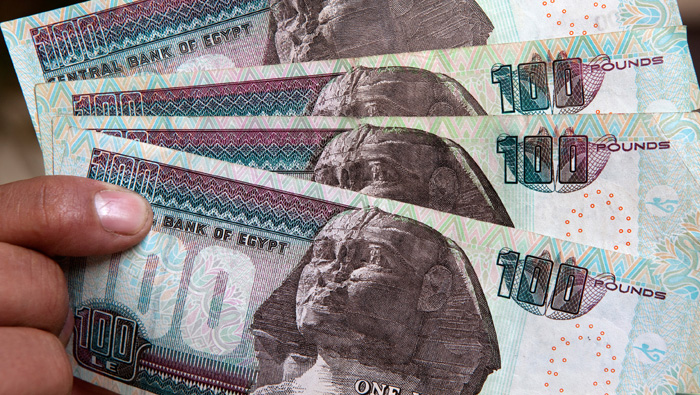
Cairo: Egypt’s parliament approved jail terms of up to 10 years for breaking foreign-exchange regulations, as it fights a black market that authorities blame for a chronic shortage of hard currency.
Violators now face prison sentences of between three and 10 years, and fines of as much as 5 million Egyptian pounds ($563,076), state-run Middle East News Agency (MENA) reported. Before the changes, punishments were limited to the suspension or revoking of currency trading licences.
“Foreign-exchange bureaus are considered a cancer in Egypt’s body,” parliamentary speaker Ali Abdel-Aal said, according to MENA.
Foreign currency receipts from investment and tourism have tumbled since the 2011 popular uprising that ousted Hosni Mubarak. Foreign reserves fell to a 16-month low in July at $15.5 billion, enough to cover about 3 months of imports.
Amid the shortage, the gap between Egypt’s official and black-market exchange rates widened to a record last month. The pound was trading at 12.57 per dollar on Tuesday, according to a survey of four dealers in Cairo and Alexandria. The official rate has remained stable at 8.88 per dollar since the central bank last devalued the pound in March.
Economists expect policy makers to devalue the pound again, or shift to a flexible exchange rate regime, as the country attempts to secure a $12 billion loan from the International Monetary Fund.
Driven underground
“Imposing prison sentences to control what is essentially free market operations is too severe because there’s no way to separate speculators from investors with legitimate needs for foreign currency,” said Reham ElDesoki, Cairo-based senior economist at Arqaam Capital.
“A lot of currency trading has gone underground as a result of the recent FX bureau closures,” she said. “This will effectively drive more trading outside official channels and out on to the streets.”
The central bank has shut 47 exchange bureaus, MENA reported, including 21 in the past two weeks. Abdel-Aal called for all such offices to be closed, according to MENA.